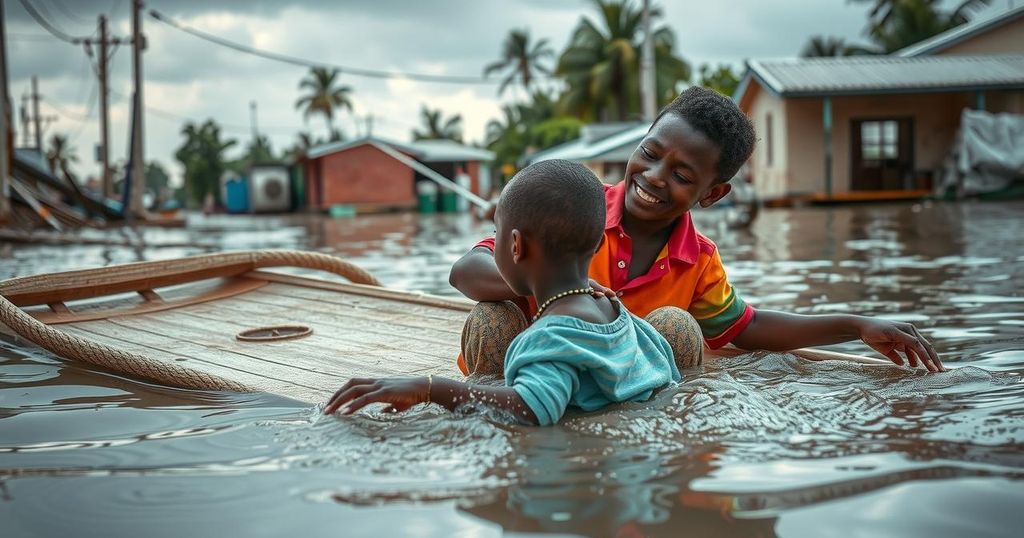Cyclone Chido has devastated Cabo Delgado province, Mozambique, affecting over 90,000 children and destroying 35,000 homes. The cyclone’s impact has included damage to 186 classrooms and health facilities, raising concerns about disease spread and food insecurity. UNICEF has called for $10 million in funding to assist in the emergency response, underscoring the severe humanitarian challenges exacerbated by the cyclone amidst ongoing conflicts and climate change.
Cyclone Chido has wreaked severe havoc in Cabo Delgado province, Mozambique, impacting over 90,000 children and destroying or damaging over 35,000 homes as it made landfall on December 17, 2024. The cyclone has also claimed the destruction of 186 classrooms and adversely affected 20 health facilities. As a country already grappling with immunodeficiency due to prolonged conflicts, drought, and disease, UNICEF has emphasized the urgency of the situation, as the cyclone exacerbates existing humanitarian crises. Close to the city of Pemba, the cyclone’s sweeping winds and heavy rains devastated essential infrastructure, stripping roofs from houses and dismantling vital electricity and communication systems. Additionally, the cyclone’s impact extended to neighboring provinces of Nampula and Niassa, leaving over 25,000 families without power and damaging water facilities, thus heightening the risk of cholera amidst ongoing outbreaks. Alarmingly, nearly 3.3 million individuals in Mozambique are projected to face high levels of food insecurity in the upcoming year, significantly, with 4.8 million requiring humanitarian aid, including 3.4 million children. These recent events underscore the growing frequency and severity of climate-related disasters in the region, as evidenced by the repeated occurrence of cyclones within the last decade. In light of these challenges, UNICEF necessitates $10 million for its emergency response to alleviate the plight of those impacted by Cyclone Chido.
Mozambique is one of the countries critically affected by climate change, enduring recurrent natural disasters that cause widespread destruction and humanitarian crises. The prolonged conflict in Cabo Delgado province has displaced 1.3 million individuals, aggravating the vulnerabilities faced by children and families in this region. In the face of these ongoing challenges, Cyclone Chido represents another severe setback, compounding the existing crises related to health, displacement, and food insecurity. Current climate patterns, such as El Niño and La Niña, are anticipated to exacerbate conditions further, emphasizing the urgent need for humanitarian assistance.
In conclusion, Cyclone Chido has inflicted devastating damage across northern Mozambique, particularly in Cabo Delgado province, affecting over 90,000 children and exacerbating the already dire humanitarian situation. With the destruction of homes, classrooms, and health facilities, critical infrastructure has been compromised, leaving vulnerable communities at increased risk of disease outbreaks and food insecurity. UNICEF’s emergency response aims to address these pressing needs, necessitating urgent funding to support the affected populations. The ramifications of such climate-induced disasters highlight a broader trend in the region that necessitates immediate global attention and sustained aid.
Original Source: reliefweb.int






